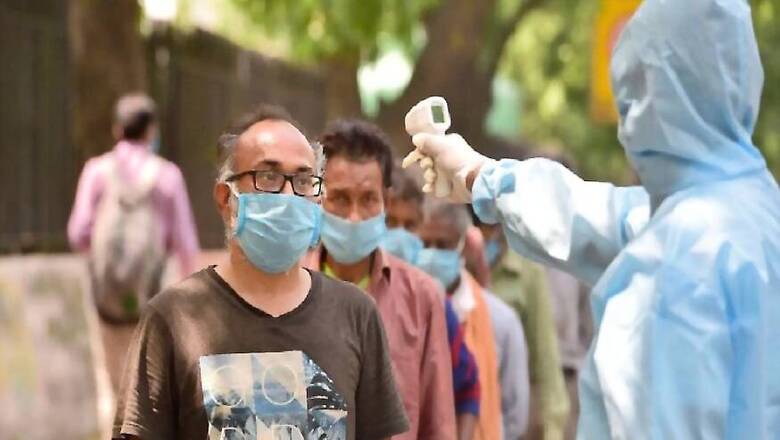
views
as state tally stood at 22,297 with 70 fatalities as of date.
Six months after recording the country's first COVID-19 case, Kerala is now gearing up to face "a big war" against the pandemic with the state under a third wave with the total cases crossing the 22,000 mark.
Chief Minister Pinaryi Vijayan on Thursday said the government was using all its resources to fight the pandemic
while Health Minister K K Shailaja said the state would put up a combined battle against the virus, whose tally stood at 22,297 with 70 fatalities as of date.
The opposition Congress criticised the government over the handling of the pandemic, claiming it was a "total failure" in the past six months.
It was on January 30 that the state reported the first COVID-19 case in the country when a woman medical student tested positive on her return to the state from Wuhan in China, the epicentre of the novel coronavirus.
The second and third cases in the country were also Wuhan returnees from Kerala and all the three were successfully
treated and discharged from hospitals with the state's healthcare model drawing praise from various quarters.
"Our journey with COVID began six months ago. The government is using all its resources to overcome the unfamiliar circumstances", Vijayan said, as he praised the people for their support in the battle against the pandemic.
Shailaja said: "What is going to come now, is a big war.... In the third phase also the state has not lost any ground (in the battle against the virus)", she said.
After successful treatment and isolation of contacts of the first batch of cases, the state was hit by the second wave of infections when a three-member family from Italy returned to Ranni village in Pathanamthitta district on March 8.
Several of their close relatives, including a 93-year-old Thomas Abraham and his 88-year old wife Mariyamma, contracted the virus, but recovered with the man becoming then the oldest COVID-19 survivor in the country.
In the second phase, there were 496 positive cases, including 165 who contracted the disease through contact, Vijayan said.
When the nation-wide lockdown was introduced on March 24, there were 105 patients under treatment and by May 8 the active cases dipped to just 16 while the infection count stood at 503, prompting the government to declare it has flattened the coronavirus curve.
However, with more and more people who returned to Kerala from the Gulf region and other countries and states testing positive for the virus, the state's positive cases nearly doubled to 1,000 by May 27.
Since the Unlock-1 began, so far 6.82 lakh people, including 4.19 lakh from other states, have returned to the state.
In the past six months, due to the government's systematic intervention, despite predictions, the state did not slide into any dangerous situation, Vijayan said.
On July 4, Kerala's tally stood at 5,000 cases and it breached the 10,000-mark by July 16 and took another 12 days
to further double to 20,000, indicating the rapid spread.
Community transmission was also reported in two coastal hamlets in Thiruvananthapuram district.
With more and more cases, the government has decided that the asymptomatic patients can undergo treatment at their homes provided they have a single room with toilet facilities.
On an experimental basis the health workers would be allowed to use this option in Thiruvananthapuram, where the total number of patients is the highest - 3,023 as on Wednesday.
Slamming the government over its tackling of the virus during the past six months, Leader of the Opposition in the state assembly Ramesh Chennithala on Thursday alleged it was a "total failure".
The government's "plan A, B and C seems to have been abandoned," he told reporters here after a meeting of the Congress-led UDF meeting.
Lack of enough testing, delayed test results and no transparency in data were the allegations raised by him against the government.
According to official data, the state has tested over seven lakh samples till Wednesday.




















Comments
0 comment